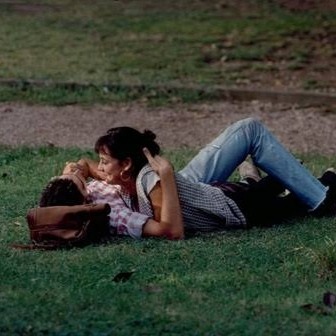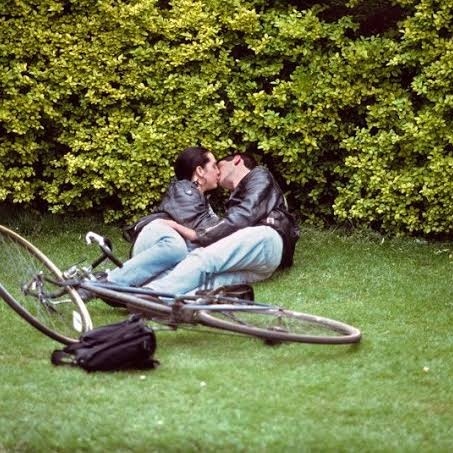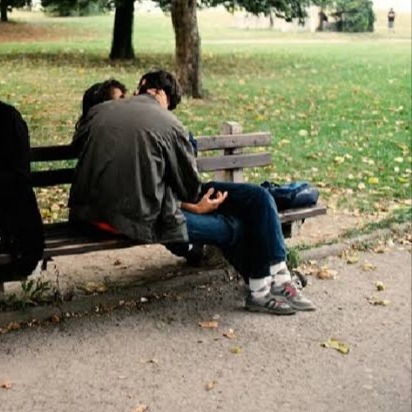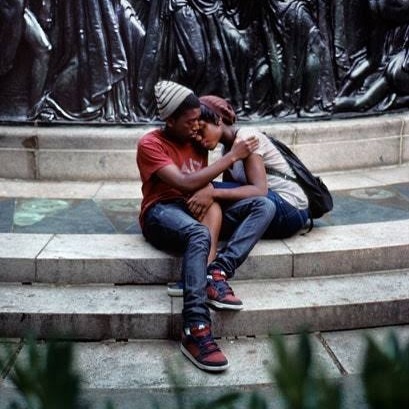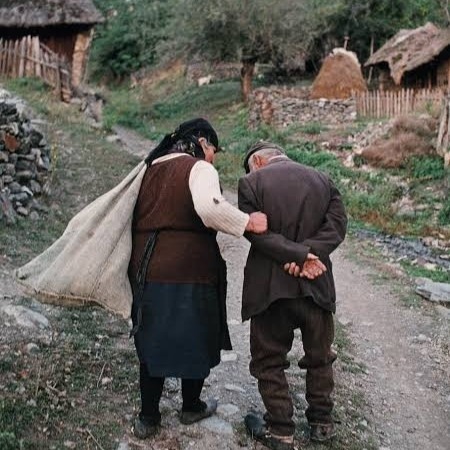Aeschylus (trans. Anne Carson), From An Oresteia; “Agamemnon”

Aeschylus (trans. Anne Carson), from An Oresteia; “Agamemnon”
More Posts from Stibnium and Others
in my island spring is just an illusion, a brief ghost of summer, that conquers winter - while in the rest of the world flowers are blooming, here, the omnipresent sea reminds us that these are its lands of summer and we are subjected with its everchanging moods










even in death we do not part
𝘐𝘯 𝘈 𝘞𝘦𝘦𝘬 - 𝘏𝘰𝘻𝘪𝘦𝘳 | 𝘭𝘦𝘧𝘵 𝘵𝘰 𝘣𝘦 𝘧𝘰𝘳𝘨𝘰𝘵𝘵𝘦𝘯 - 𝘤𝘰𝘳𝘯𝘧𝘭𝘢𝘬𝘦𝘴𝘥𝘰𝘦𝘴𝘢𝘳𝘵 | “𝘚𝘰 𝘭𝘰𝘯𝘨, 𝘸𝘦’𝘥 𝘣𝘦𝘤𝘰𝘮𝘦 𝘵𝘩𝘦 𝘧𝘭𝘰𝘸𝘦𝘳𝘴” - 𝘮𝘦𝘨𝘢𝘯𝘭𝘶𝘥𝘥𝘺𝘪𝘭𝘭𝘶𝘴𝘵𝘳𝘢𝘵𝘪𝘰𝘯 | 𝘔𝘢𝘺 𝘚𝘸𝘦𝘯𝘴𝘰𝘯 | 𝘚𝘦𝘭𝘧-𝘤𝘢𝘳𝘦 - 𝘮𝘪𝘭𝘴𝘢𝘦 | 𝘖𝘭𝘢𝘷𝘪 𝘓𝘢𝘯𝘶 | | 𝘮𝘦𝘮𝘰𝘳𝘪𝘢𝘭 𝘵𝘰 𝘢 𝘮𝘢𝘳𝘳𝘪𝘢𝘨𝘦 | 𝘓𝘰𝘷𝘦𝘳𝘴 𝘰𝘧 𝘝𝘢𝘭𝘥𝘢𝘳𝘰 | 𝘚𝘭𝘦𝘦𝘱𝘪𝘯𝘨 𝘐𝘯 𝘛𝘩𝘦 𝘍𝘰𝘳𝘦𝘴𝘵 - 𝘔𝘢𝘳𝘺 𝘖𝘭𝘪𝘷𝘦𝘳 | 𝘚𝘢𝘪𝘯𝘵 𝘚𝘦𝘪𝘺𝘢 | 𝘺𝘰𝘶 𝘢𝘳𝘦 𝘳𝘰𝘵𝘵𝘪𝘯𝘨 𝘧𝘭𝘦𝘴𝘩 𝘢𝘯𝘥 𝘺𝘰𝘶 𝘢𝘳𝘦 𝘣𝘦𝘢𝘶𝘵𝘪𝘧𝘶𝘭 - 𝘭𝘪𝘯𝘴𝘦𝘦𝘥𝘭𝘪𝘯𝘨 | “𝘋𝘰 𝘠𝘰𝘶 𝘞𝘢𝘯𝘵 𝘛𝘰 𝘋𝘪𝘦 𝘛𝘰𝘨𝘦𝘵𝘩𝘦𝘳?” 𝘚𝘵𝘢𝘳𝘴 | 𝘗𝘩𝘪𝘭𝘪𝘱 𝘓𝘢𝘳𝘬𝘪𝘯 | 𝘑𝘦𝘴𝘴𝘪𝘦 𝘏𝘴𝘶 𝘢𝘯𝘥 𝘑𝘦𝘢𝘯 𝘊𝘩𝘢𝘯𝘨 - 𝘡𝘩𝘰𝘯𝘨 𝘓𝘪𝘯 | 𝘩𝘶𝘮𝘮𝘪𝘯𝘨𝘣𝘪𝘳𝘥 - 𝘡𝘩𝘰𝘯𝘨 𝘓𝘪𝘯 | 𝘋𝘦𝘢𝘵𝘩 𝘞𝘪𝘭𝘭 𝘓𝘦𝘢𝘷𝘦 𝘉𝘦𝘩𝘪𝘯𝘥 𝘓𝘰𝘷𝘦 - 𝘧𝘳𝘶𝘪𝘵𝘣𝘭𝘶𝘴𝘩 | 𝘙𝘶𝘭𝘦𝘴 𝘰𝘧 𝘕𝘢𝘵𝘶𝘳𝘦 #3 - 𝘴𝘶𝘯𝘴𝘣𝘭𝘦𝘦𝘥𝘪𝘯𝘨 | 𝘚𝘱𝘳𝘪𝘯𝘨 𝘪𝘴 𝘤𝘰𝘮𝘪𝘯𝘨, 𝘪𝘵 𝘪𝘴 𝘵𝘪𝘮𝘦 𝘧𝘰𝘳 𝘳𝘦𝘯𝘦𝘸𝘢𝘭 <3- 𝘢𝘳𝘵𝘰𝘧𝘮𝘢𝘲𝘶𝘦𝘯𝘥𝘢 | 𝘢𝘯𝘢 𝘮𝘦𝘯𝘥𝘪𝘦𝘵𝘢 𝘴𝘪𝘭𝘶𝘦𝘵𝘢 𝘴𝘦𝘳𝘪𝘦𝘴 | | 𝘌𝘥𝘷𝘢𝘳𝘥 𝘔𝘶𝘤𝘩
What do you think all writers have in common?
an overwhelming and insatiable longing for something more than this
BREAKING NEWS
I just learned about a bird species called Golden Plover. Their chicks have an amazing camouflage: their baby fluff resembles MOSS!
LOOK AT THEM! JUST LOOK AT THEM!
...Oh to be a tiny golden plover lying in the moss safe and sound waiting for your mom to bring you some worms...





You with your precious eyes —
The gods differ from mortals here not because they are above the law but because they possess the insight to avoid breaking it. This marks the difference between gods and mortals perhaps more deeply than death itself: the gods never find themselves in the position of Oedipus, suddenly and unimaginably guilty. They are able to avoid actions whose consequences they cannot control; mortals risk such consequences in their every action. And perhaps it is even a kindness that transgression and death go hand in hand, that those who cannot die need not sin: for one who has broken the law which even the gods fear, the best thing is to die quickly.
-incest, cannibalism, and the rise of the house of atreus, michael kinnucan
So the ubiquitous counsel of the chorus concerning the hero—look what fortune has done here, she used to be on top of the world, don’t count on happiness, don’t believe anyone happy until he is dead—says more than it seems to. In the last analysis, what can one say of mere mortals? A human is just too partial, too speckled and subject and already-half-gone, for anything to be really true or false of him. Is he happy, is she sad? Maybe, a bit, for a time, but really—who can say, who can even care? That’s how it is for humans, unless and until they are tragic. The tragic hero is complete. You can call him unhappy (miserable, utterly broken) even before he is dead. For an instant he is something like divine. And then he dies, because there’s nothing left to do. The center of every tragedy is the image of a human being who has already died but keeps talking, someone whose face is a mask. Antigone says this explicitly—she is already dead; Oedipus acts it out in gouging out his eyes.
-the gods show up, michael kinnucan
society6 | twitter | ko-fi | deviantart
-
 evaemor liked this · 2 weeks ago
evaemor liked this · 2 weeks ago -
 simpathizer reblogged this · 1 month ago
simpathizer reblogged this · 1 month ago -
 kreetn reblogged this · 1 month ago
kreetn reblogged this · 1 month ago -
 kreetn liked this · 1 month ago
kreetn liked this · 1 month ago -
 ivoryratdoggerythethird liked this · 1 month ago
ivoryratdoggerythethird liked this · 1 month ago -
 lerkaaim liked this · 1 month ago
lerkaaim liked this · 1 month ago -
 lowklyn reblogged this · 1 month ago
lowklyn reblogged this · 1 month ago -
 lowklyn liked this · 1 month ago
lowklyn liked this · 1 month ago -
 therealnambi reblogged this · 1 month ago
therealnambi reblogged this · 1 month ago -
 vanillatwilight-13 liked this · 1 month ago
vanillatwilight-13 liked this · 1 month ago -
 zenoyp reblogged this · 1 month ago
zenoyp reblogged this · 1 month ago -
 zenoyp liked this · 1 month ago
zenoyp liked this · 1 month ago -
 ania-lynn liked this · 1 month ago
ania-lynn liked this · 1 month ago -
 community-gardenss liked this · 1 month ago
community-gardenss liked this · 1 month ago -
 amevinil239 liked this · 1 month ago
amevinil239 liked this · 1 month ago -
 jstanothercircefan liked this · 1 month ago
jstanothercircefan liked this · 1 month ago -
 thhouseofblack reblogged this · 1 month ago
thhouseofblack reblogged this · 1 month ago -
 starsofaquaria liked this · 1 month ago
starsofaquaria liked this · 1 month ago -
 mickemz01 liked this · 1 month ago
mickemz01 liked this · 1 month ago -
 palamedespoetry reblogged this · 1 month ago
palamedespoetry reblogged this · 1 month ago -
 zombeeirl liked this · 1 month ago
zombeeirl liked this · 1 month ago -
 min-d reblogged this · 2 months ago
min-d reblogged this · 2 months ago -
 salomania liked this · 2 months ago
salomania liked this · 2 months ago -
 countryroads26 liked this · 2 months ago
countryroads26 liked this · 2 months ago -
 dynamicsbitch liked this · 2 months ago
dynamicsbitch liked this · 2 months ago -
 heart-a-holic liked this · 2 months ago
heart-a-holic liked this · 2 months ago -
 sword-hearted reblogged this · 3 months ago
sword-hearted reblogged this · 3 months ago -
 gingernutsenthusiast liked this · 3 months ago
gingernutsenthusiast liked this · 3 months ago -
 theresomethinginthestatic reblogged this · 3 months ago
theresomethinginthestatic reblogged this · 3 months ago -
 refundwhereappliccable liked this · 3 months ago
refundwhereappliccable liked this · 3 months ago -
 leo-regulus reblogged this · 3 months ago
leo-regulus reblogged this · 3 months ago -
 werewolff liked this · 3 months ago
werewolff liked this · 3 months ago -
 phoenixdiedaweekago reblogged this · 3 months ago
phoenixdiedaweekago reblogged this · 3 months ago -
 kalkulus reblogged this · 3 months ago
kalkulus reblogged this · 3 months ago -
 amy20s liked this · 3 months ago
amy20s liked this · 3 months ago -
 acephalicccc liked this · 3 months ago
acephalicccc liked this · 3 months ago -
 slutty-void reblogged this · 3 months ago
slutty-void reblogged this · 3 months ago -
 holyinnocent reblogged this · 3 months ago
holyinnocent reblogged this · 3 months ago -
 rh4egar reblogged this · 3 months ago
rh4egar reblogged this · 3 months ago -
 slightly-awkward-dragon reblogged this · 4 months ago
slightly-awkward-dragon reblogged this · 4 months ago -
 shouttang liked this · 4 months ago
shouttang liked this · 4 months ago -
 ellie-mutterings reblogged this · 4 months ago
ellie-mutterings reblogged this · 4 months ago -
 juliamoonia reblogged this · 4 months ago
juliamoonia reblogged this · 4 months ago -
 cheesecake-massacre liked this · 4 months ago
cheesecake-massacre liked this · 4 months ago -
 gamelpar reblogged this · 4 months ago
gamelpar reblogged this · 4 months ago -
 starry-eyed-wraith reblogged this · 4 months ago
starry-eyed-wraith reblogged this · 4 months ago -
 asteroid-hyalosis reblogged this · 4 months ago
asteroid-hyalosis reblogged this · 4 months ago -
 loverofheartts reblogged this · 4 months ago
loverofheartts reblogged this · 4 months ago

overgrown bat, occultist, alchemist, aspiring potion maker, least but not last, poet.
172 posts





